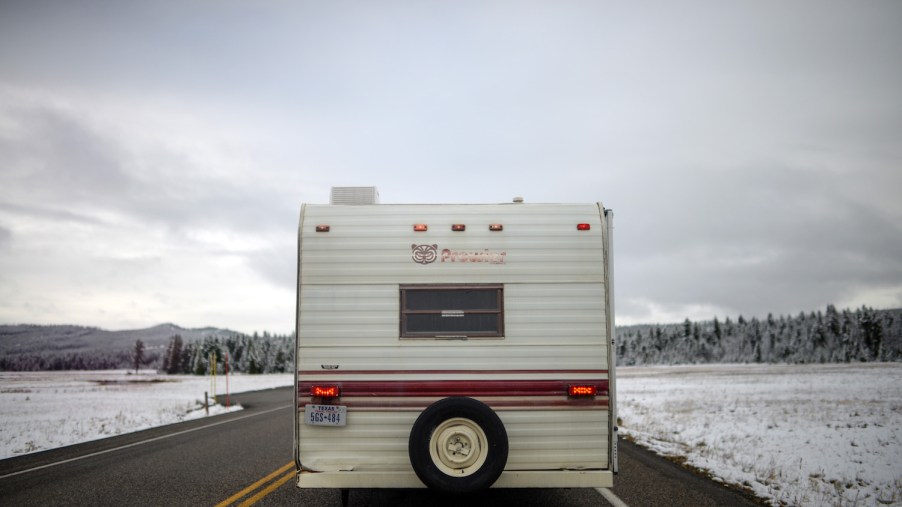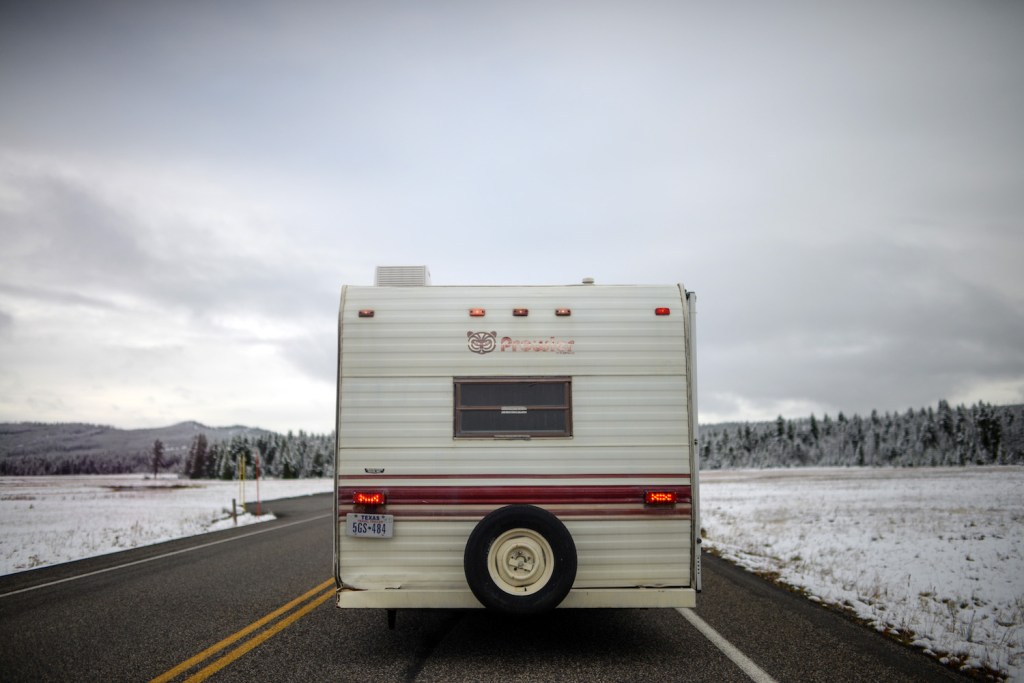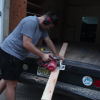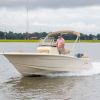
Here’s How Not to Freeze When Winter Camping in Your RV
Winter camping in an RV can make for a pretty unique and thrilling adventure. And while it might sound intimidating to camp during the colder months, with the right preparations, you can enjoy the excitement of winter camping while staying both warm and safe in your RV.

Can you use your RV during the winter?
While some RV owners would prefer to pack up and head down south during the winter months, plenty of RV owners stick around in hopes of enjoying the winter landscape. Many even hit the road in search of it. Fortunately, using your RV in the winter isn’t all that difficult either. Especially with the right preparation.
But what does that actually mean? Well, according to Go RV’ing, there are several steps you can take to prepare your RV for a winter camping trip. Go RV’ing recommends checking if your RV came with a thermal package. This package should have included extra insulation that can be applied to your RV. You’ll also want to outfit your RV with a skirt, which will help keep components such as the batteries, plumbing, and heating system warm.
Prepping your RV for a winter camping trip
There’s more that goes into prepping your RV for a winter camping trip, though. According to Reserve America, you’re going to want to do a thorough inspection of your RV before hitting the road for a winter camping trip. First, check out the exterior of your RV, particularly the window seals and weather stripping. If anything is amiss, you’re going to want to repair or replace it.
You’re also going to want to take care of your RV’s plumbing. To protect your dump valves from freezing, Reserve America recommends emptying your black and gray water tanks and adding about a quart of RV antifreeze. If your RV has a freshwater hook-up, you should also consider buying a heated water hose to prevent it from freezing or bursting.
As for when you get to the campsite? KOA recommends placing wooden blocks underneath your rig’s stabilizing jacks to help prevent them from sticking and freezing.
How to keep the inside of your RV warm during the winter
RV Share reports that keeping the inside of your RV warm during the winter takes a bit of know-how. While many RVs have both a “heat pump” built into the rooftop unit and an onboard propane furnace, if the temperature falls under 45 degrees, you should be using your RV’s furnace rather than its heat pump. “Your HVAC system is only rated to warm the space down to a certain external temperature, and if you try to warm a freezing RV with the unit alone, you risk burning it out entirely,” explains RV Share.
Axle Addict also recommends investing in a portable heater, preferably a portable ceramic heater. Electric blankets can also help keep you warm during a winter camping trip in your RV. Don’t discount the benefits of throwing a few cheap throw rugs on your RV’s floor, either.
What to pack for a winter camping trip in your RV
To keep yourself warm during a winter camping trip in your RV, you’re going to want to make sure that you’ve packed all of the necessary clothes and equipment too. This means not leaving behind things like winter jackets, boots, and gloves. You’re also going to want to pack trip essentials like road flares, a shovel, and a tool kit. And don’t forget an ice-scraper. You are going winter camping, after all.
Make enjoying the great outdoors a year-round adventure
Whether you want to go winter camping to hit the slopes or simply want to take in the beauty of a snow-covered landscape, there are plenty of reasons to prep your RV for your next adventure. Not only will doing so help protect your RV from the elements, but it’ll also keep you nice and cozy when you’re not out enjoying the snow.



